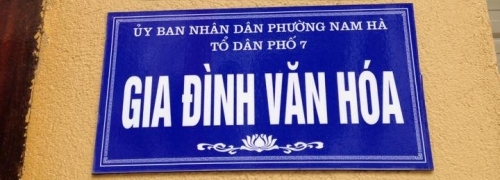Ads, Adore, and Addict: cultural shifts
By Matthieu on Thursday, October 20 2016, 17:08 - Permalink
As media and trends move faster, our consumer societies sometimes undergo spectacularly quick transformations. I have recently noticed 3 notions where cultural conceptions worldwide have been toppled upside down: the consumer will “Adore”, will be “Addicted”, and Ads are here to know what you like and become viral.
Adore
I’m starting my story the way it came to me. Living in Vietnam, I partly witness the transition and contrast from pre-war generation (under French influence, respectful of Confucian and Buddhist traditions), post war generation (pro USSR, but still keeping Confucian and Buddhist as part of Vietnamese identity), and the young generations (embracing exhibitionist consumerism, iPhones selfies and hipster styles).
Throughout Buddhism, “passion” and “enthusiastic fascination” (迷, Mê) is considered evil as a source of suffering. It receives similar treatment in Plato’s philosophy. This word has a negative connotations in Chinese and Vietnamese (e.g. 迷信: superstition, 迷惑: confuse, 迷宫: maze, 迷路: lose way, 痴迷: crazy, 低迷: depressed, 迷醉: intoxicate, etc.) However nowadays, the word is gaining glamour, and is considered as a desirable sign of enjoyment. In this advertisement here-below, it rhymes with Yêu, love.

A comparable shift happened long ago in English and French, when the word “adore” became a mere synonym of liking something very much. Considering the 2nd of the Bible’s 10 Commandments, forbidding the adoration of idols, we can see that the word has gone a long way up until now!
Addict
More surprisingly, as several studies start to warn about the addictive dangers of video games, apps, TV series and others recent digital medias, the very word “addictive” managed to become a marketing catchphrase! Countless ads praise the latest online “addicting games” that will “take control of your life” and “keep you awake all night”.

How incredible that the selling pitch of a product uses the exact same language as those denouncing their dangers! Have we gone to the point where self-indulgence, decadence and selfish craving can be openly glorified? Maybe these evils have been blamed too heavily in our traditional cultures and the feeling of guilt now swings back to the other extreme: claiming egoist hedonism and self-intoxication as a new way of life?
Advertisements
I remember 20 years ago, advertisement was still vastly regarded as a one-way marketing hunting tool, trying to urge consumers to buy a product or service. Every company was praising its own product and pushing them to the market. Later on, several studies showed that TV audience actually likes ads, for their catchy style and entertainment.
Further down the line, we saw Facebook asking us whether we find such or such ad interesting, relevant, or funny to us. That is another great shift: ads are supposed to become “relevant”, and to do so, each of us is supposed to allow Google and Facebook to know our tastes. Now, since most of us can’t really figure out what we would like, Google offers to plays the Gestapo-psychologist and spy on us to predict our behavior, and convert us into consuming appendices of the supply chain. No need to think further, mother Google will tell us “what we like”.
That’s it.
Now it’s time to ask ourselves whether we really want to go down that path:
Craze and crave in your cradle-grave, with umbilical cords to crate you as slave.
Maybe at some point, rejecting the machine assistance to consumer decision could be considered as a seditious act blamed for destabilizing the computed economy?
Actually to be fair, modern ads are not purely turning us into passive consumers, but also convert us into ambassadors, to share the ads in turn, either for its fun, or because we genuinely want to share the word. This implies more commitment, and maybe, even critical thinking! Such social interactivity with the ad is the opportunity for freedom of expression through online civil society, promoting or criticizing content.
BONUS: Social Credit Rating
When allowing personal initiative and freedom of speech, one of the next moves of abusive governments is "Social Credit".
There are various forms of such rating. So far they mostly focus on the credit-worthiness of loan takers, analyzing their purchase record and contact list to determine whether lending them money is safe. For example the "Sesame credit" 芝麻信用 from Alibaba's 蚂蚁金服 "Ant Financial Service" in China since 2015, with 190 million users. Some dating websites (e.g. 百合 Baihe) encourages users to boast their scores, thus influencing matching, making it de facto a criteria for social segregation. Similar credit ratings are in use in the US (Credit Karma since 2007, and ironically since 2010: Credit Sesame!) Facebook also tried one in 2014, based on social media content, but called it off in Feb 2016 over regulatory issues.
Here is a broader and quite perverted version of social credit: Each citizen would be rated based on the compliance of his behavior with a given standard. Criteria could include purchases, message content, readings, travels, studies, and even non-secretiveness (willingness to show all their life for analysis), etc. Bad grade citizens are penalized when asking for services (loan, study, accommodations, etc.), while good pupils are rewarded. The social credit of whoever you connect with and meet could also affect your own credit, thus preventing social class mix and dialogue.
That would be a lovely way to manipulate populations by saying: "Yes you are free, but being "naughty" will make your life much harder..." Besides, whatever criteria included in the evaluation must be provided to the rating agency, since "You don't have anything to hide, do you?". Easy to see how it can go wrong.
In Vietnam a still distantly comparable rating system is used: "Gia đình Văn hóa" : 家庭文化: "Family with (proper) culture", which rewards compliant and orthodox families with a public signboard. Areas with above 80% of such families can also apply to receive the award. Luckily, it's a voluntary system and not everyone is monitored.. at least in principle.

I hope for an economic model rather centered on demand, where each of us can creatively express his wish about a new product or service, and build up a group of interested buyers. A kind of crowd funding, but only bringing forward ideas to the supply side. The next steps would aim toward a Venus Project model, where mass automation coupled with renewable energies and recycling enables a society of abundance, without money, less work, more freedom, creativity, and meaning.
Comments
Good article ! I share most of your analysis.
I have also been stuck by the use of the "addict" word. One of the most striking examples were adds about THE supposedly addictive game of the moment. After all the complaints we can get about how addictive video games are (and a reason I personally don't start playing !), it becomes a marketing argument.
It is also interesting to see how we are supposed to love advertisement. An example was the moment Apple launched its Ad framework a few years ago. The communication targeting developer was that it would allow them to "delight" their customers with ads they will "love" ! Apparently, if you don't insert those adds, you are a bad developer that does not pay attention to the well-being of your users! I still fail to understand how I can be delighted by ads. They are usually a necessary evil, as nothing is really free coming from companies that have to make a business.
One thing with TV ads I only saw in China so far was the subsequent repetition of ads two or three times in a row. I tend to consider that if serving you an ad once is not enough to convince you, it is probably that either the ad misses the point, or you are not the target!
I tend to rely myself on ad blockers that I disable on the Websites I use regularly to respect their work that deserves a payment. The only issue I had with this policy so far was with Le Monde, where ads are far too intrusive...
Yes.. receiving "ads we love" is the new excuse for collecting and merging personal data. Give up our privacy and become more manipulable.
I have added a paragraph on Social Credit Rating and the Chinese 芝麻信用 to go further on that dystopian line!
Relieved to see that I still got my new Vietnam visa!